COMED-K Code: E204
Lighted to Enlighten

Civil Engineering
About
Department of Civil Engineering was started in the year 1979 with an intake of 40 under "Karnataka University, Dharwad". In the year 1984, the intake was increased to 60 with change in affiliating university as "Gulbarga University, Gulbarga". in the year 1998, the college got affiliated to "Visvesvaraya Technological University, Belgaum". Till date 37 batches of students have passed out from the branch.
Vision
To become a school of excellence that brings out Civil Engineers with high technical competencies and promote high-end research to meet the current and future challenges in Civil Engineering
Mission
- To offer UG programmes in civil engineering and other skill development courses that add value to student competencies
- To promote quality education, consultancy for industrial and government agencies needs
- To inculcate moral and ethical values among the students
- To impart knowledge with emphasis on the development of leadership qualities in students
- To encourage students to pursue higher education and take competitive exams and various career enhancing courses
- To have regular interaction with industry and offer solutions to their problems
SWOC
Strength:
1. Fully experienced and Qualified Faculty.
2. Adequate Infrastructure.
3. Trusted mentorship offered to students.
4. Overall performance of students is good.
5. Consultancy services offered to government & private organisation.
6. Good number of faculty members are resource persons for skill development programme.
Weakness:
1. Entry of students with very low CET ranking.
2. Locality disadvantage- Place backwardness and climatic conditions.
Opportunity:
1. Scope for starting new courses.
2. Increase Industry Institute Interaction.
Challenge:
1. Decline in demand for technical education.
2. Employment opportunities are declining in the present scenario.
3. Competition from Government Engineering college with low fee structure, very near to our college.
Faculty
 Dr. R. Basawaraja, Ph.D.
Dr. R. Basawaraja, Ph.D.
Principal
Experience-37 Years- Sankar Gowda Patil, M.Tech.
Assistant Professor & HOD
Experience-30 Years  Kristaiah Shetty, M.E.
Kristaiah Shetty, M.E.
Assistant Professor
Experience-13 Years Subashchandra P., M.Tech.
Subashchandra P., M.Tech.
Assistant Professor
Experience-8 Years Sandeep Patil, M.Tech.
Sandeep Patil, M.Tech.
Assistant Professor
Experience-7 Years Shruthi Shivaraj, M.Tech.
Shruthi Shivaraj, M.Tech.
Assistant Professor
Experience-4 Years Amaresha, M.Tech.
Amaresha, M.Tech.
Assistant Professor
Experience-2 Years Mahantesh Patil, M.Tech.
Mahantesh Patil, M.Tech.
Assistant Professor
Experience-1 Years Ananthalaxmi, M.Tech.
Ananthalaxmi, M.Tech.
Assistant Professor
Experience-0.4 Years
Infrastructure
The Department has 8 laboratories, with more than 25 dual core i3 computer systems connected through LAN. The Department also has WiFi facility. More than 6 license application softwares and many open license application softwares are present.
Reprographic facility is available in the department. All the labs have First Aid facilities along with CCTVs.
Laboratory details
| Name of the Lab | Area in Sq.m | Major Equipments |
| Lab 1: CHMT Lab |
114.21 |
Abrasion testing machine, Table vibrator, Vee-Bee Consistometer, Compaction factor, Bitumen penetrato meter, Slump cone test apparatus, vicat apparatus, Impact testing machine, set of IS sieves, Flakiness thickness gauge. |
| Lab 2: H & HM Lab |
198.00 |
Bernoulli's Apparatus, Notches, Venturimeter, Weirs, Calibration of Dead Weight pressure gauge, Darce's friction apparatus, Venturiflume apparatus, Impact of Jet on Vanes. |
| Lab 3: Geo-technical Engineering Lab |
129.95 |
Tri-axial Shear test, Direct shear test, Consolidation test, Plate load test equipment, Consistency limit apparatus, Unconfined compression test apparatus, CBR test apparatus, standard penetration test apparatus, hydrometer test |
| Lab 4 CAD Lab |
48.80 |
20 nos HP Core i3 pc's,Benq Projector, UPS, A3 printer. |
| Lab 5 Surveying Lab |
40.33 | Total Station, 22 nos Theodolite, 17 nos Dumpy Level, 25 nos Prismatic Compass, 16 nos Plane table, 05 Auto level, Chains & Tapes, Ranging rods, staff. |
| Lab 6 Environmental Engineering Lab |
116.48 |
Spectrophotometer, pH Meter, Neplopmeter, Electronic Weighing Balance, Conductivity meter, Magnetic stirrer, Hot oven, Muffle furnace, BOD Incubator, Distilled water plant. |
| Lab 7 Geology Lab |
65.32 | Specimens & Models |
| Lab 8 Basic Material Testing Lab |
90.00 | Universal Testing Machine, Impact testing machine, Hardness testing machine, Compression testing machine, torsion testing machine, fatigue testing machine. |
Syllabus
Time-Table
PSOs & COs
Programme Specific Outcomes
discipline of Civil Engineering
| Course Name | TRANSFORM CALCULUS, FOURIER SERIES AND NUMERICAL TECHNIQUES |
| Course Code | 21MAT31 |
| CO1 | To solve ordinary differential equations using Laplace transform |
| CO2 | Demonstrate the Fourier series to study the behaviour of periodic functions and their applications in system communications, digital signal processing and field theory. |
| CO3 | To use Fourier transforms to analyze problems involving continuous-time signals and to apply Z-Transform techniques to solve difference equations |
| CO4 | To solve mathematical models represented by initial or boundary value problems involving partial differential equations |
| CO5 | Determine the extremals of functionals using calculus of variations and solve problems arising in dynamics of rigid bodies and vibrational analysis. |
| Course Name | Geodetic Engineering |
| Course Code | 21CV32 |
| CO1 | Possess a sound knowledge of fundamental properties of fluids and fluid Continuum. |
| CO2 | Compute and solve problems on hydrostatics, including practical applications. |
| CO3 | Apply principles of mathematics to represent kinematic concepts related to fluid flow. |
| CO4 | Apply fundamental laws of fluid mechanics and the Bernoulli’s principle for practical applications. |
| CO5 | Compute the discharge through pipes and over notches and weirs. |
| Course Name | STRENGTH OF MATERIALS |
| Course Code | 21CV33 |
| CO1 | Posses a sound knowledge of fundamental principles Geodetics. |
| CO2 | Measurement of vertical and horizontal plane, linear and angular dimensions to arrive at solutions to basic surveying problems. |
| CO3 | Capture geodetic data to process and perform analysis for survey problems. |
| CO4 | Analyze the obtained spatial data and compute areas and volumes. Represent 3D data on plane figures as contours. |
| CO5 | Apply various arithmetic and logical operations on integer and floating point numbers, hard wired control, microcontroller’s instructions and embedded systems. |
| Course Name | Earth Resources and Engineering |
| Course Code | 21CV34 |
| CO1 | Students will able to apply the knowledge of geology and its role in Civil Engineering. |
| CO2 | Students will effectively utilize earth’s materials such as mineral, rocks and water in civil engineering practices. |
| CO3 | Analyze the natural disasters and their mitigation. |
| CO4 | Assess various structural features and geological tools in ground water exploration, Natural resource estimation and solving civil engineering problems. |
| CO5 | Apply and asses use of building materials in construction and asses their properties. |
| Course Name | COMPUTER AIDED BUILDING PLANNING AND DRAWING |
| Course Code | 21CVL35 |
| CO1 | Select suitable materials for buildings and adopt suitable construction techniques. |
| CO2 | Adopt suitable repair and maintenance work to enhance durability of buildings. |
| CO3 | Plan and design of residential or public building as per the given requirements |
| Course Name | Personality Development and Soft skills (AEC) |
| Course Code | 21CV383 |
| CO1 | Reproduce the basic knowledge of mathematics and engineering in finding the strength in tension, compression, shear and torsion. |
| CO2 | Identify, formulate and solve engineering problems of structural elements subjected to flexure. |
| CO3 | Evaluate the impact of engineering solutions on the society and also will be aware of contemporary issues regarding failure of structures due to unsuitable materials. |
| Course Name | Surveying lab |
| Course Code | 17CVL38 |
| CO1 | Apply the basic principles of engineering surveying for linear and angular measurements. |
| CO2 | Comprehend effectively field procedures required for a professional surveyor. |
| CO3 | Use techniques, skills and conventional surveying instruments necessary for engineering practice. |
Course Outcome for other Semesters: Click here
MOUs
1. Medini, Bangalore
2. Srinivasa Constructions, Raichur
3. CASHUTECH
4. Zilla Nirmiti Kendra, Raichur
Feedback Analysis
News & Events
Photo Gallery
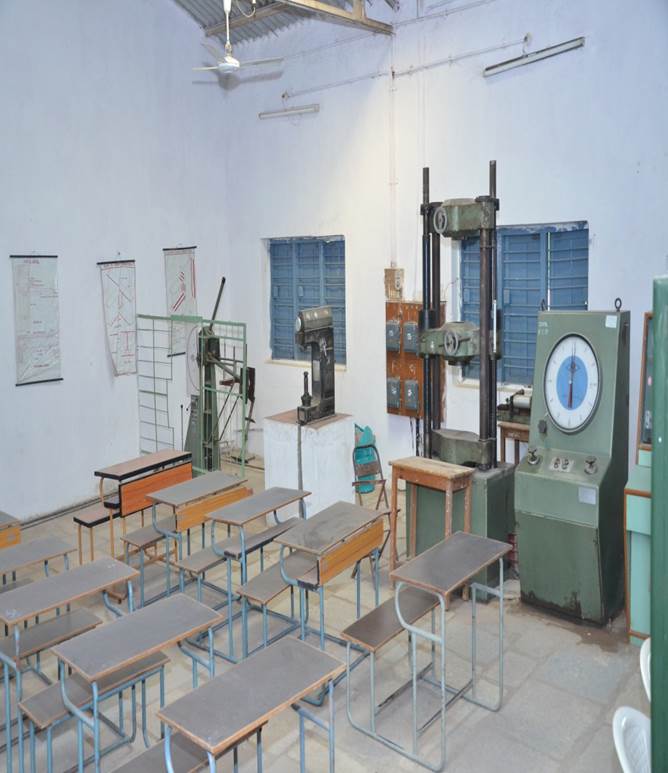 |
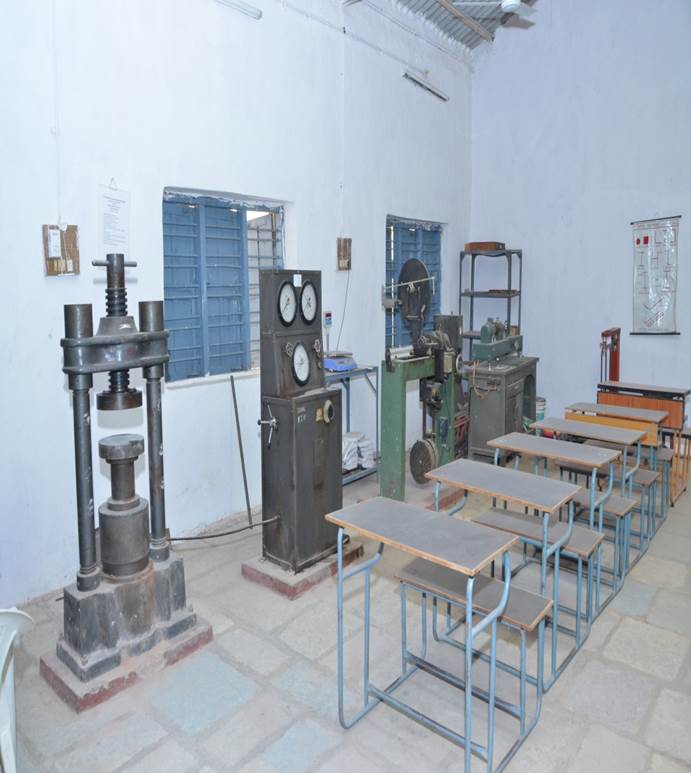 |
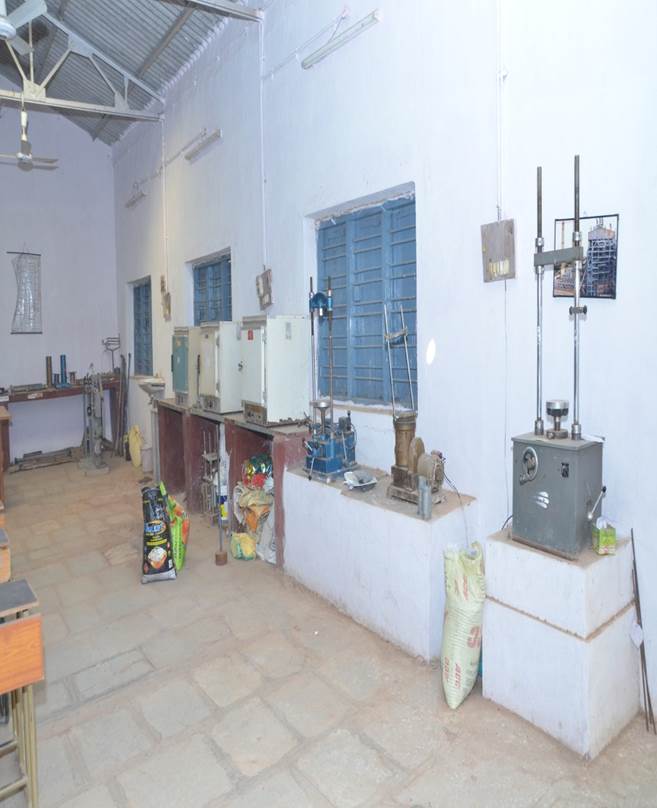 |
|
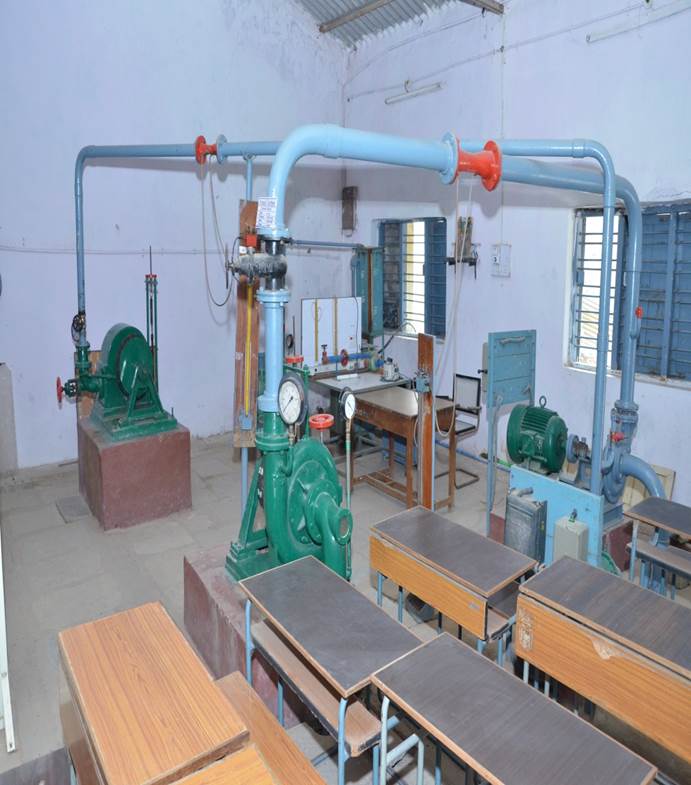 |
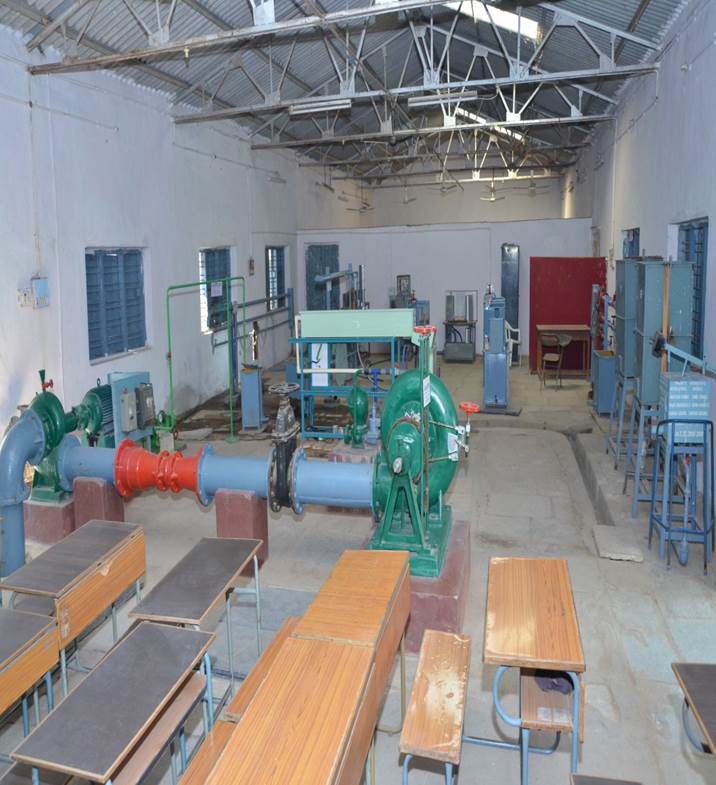 |



